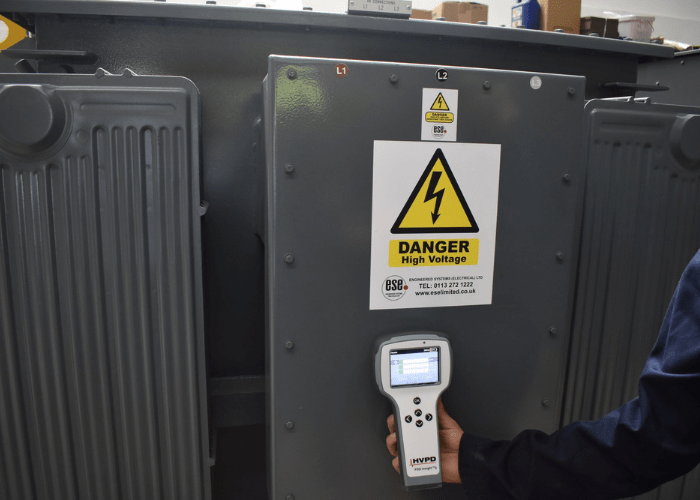
Maintaining the integrity of electrical insulation is vital to ensure the safe and reliable operation of high voltage equipment. Partial discharge (PD) testing - a key element of high voltage electrical safety - is a diagnostic technique that assesses the condition of electrical insulation and provides electrical engineers with important real-time information about emerging faults or weaknesses.
In this article, we’ll examine the importance of partial discharge testing for electrical insulation and its benefits in preventing electrical failures.
What Is A Partial Discharge Test?
Partial discharges are small electrical sparks, or discharges, that occur within the insulation of high-voltage equipment. Although small, these discharges can lead to progressive deterioration of the insulation over time. Without a programme of regular monitoring, partial discharges may go unnoticed, causing irreparable damage to high voltage equipment.
By monitoring and analysing partial discharges, minor insulation defects or weaknesses can be detected and addressed before they escalate into more serious issues or total electrical failures.
A Non-Destructive, Non-Invasive Test
An important advantage of PD testing is that it is non-destructive and non-invasive. The test can be conducted while the equipment is in operation, without causing any damage or interruption to its normal functioning. This allows for regular monitoring and assessment of the insulation condition without the need for time-consuming and expensive equipment shutdowns that will cost your business money and depleted productivity.
So, what are the benefits of PD testing?
Early Detection Of Insulation Problems
Partial discharge testing enables the early detection of insulation defects that may not be visually apparent. By identifying these issues at an early stage, corrective measures can be taken to prevent further degradation of the insulation. Addressing insulation problems promptly helps to prolong the service life of electrical equipment and reduces the risk of unexpected failures and costly downtime.
Mitigating Hazards
Faulty insulation can lead to electrical breakdowns and pose serious safety risks to equipment users and personnel, such as fires and explosions. PD testing help to identify insulation failures that could compromise the overall safety of an electrical system. By proactively addressing these issues, the risk of equipment failures and associated hazards is significantly reduced.
Cost Savings
Implementing partial discharge testing is best conducted as part of a predictive maintenance strategy. By detecting insulation defects early, equipment downtime can be minimised and repairs or replacements scheduled during planned maintenance windows. This proactive approach helps to optimise maintenance resources, reduce unplanned downtime, and save money by enacting repairs in the most cost-efficient way possible.
Contact ESE To Find Out More
As a provider of professional and experienced high voltage maintenance services, we offer partial discharge testing that will help to keep your business’s electrical equipment in optimum condition. To find out more, please contact our team.
Posts By Topics
- general (61)
- Expert Electrical Contractors (9)
- Case Studies (8)
- High-Voltage Equipment Maintenance (8)
- Electrical Distribution Equipment (6)
- High Voltage (4)
- High Voltage Electrical Safety (3)
- High-Voltage Switchgear (2)
- Independent Connection Provider (2)
- Engineered Systems (Electrical) Ltd (1)

